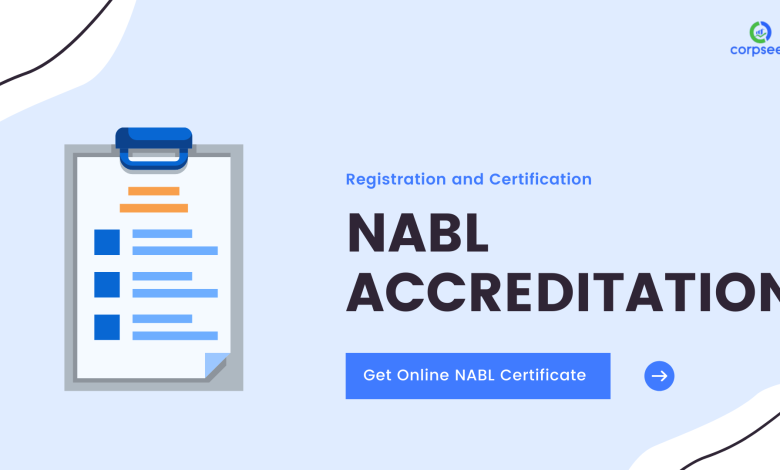
National Accreditation Board for Testing and Calibration (NABL) is a National Technical Recognition, established in 1985-86 with the approval of Govt. of India, under the Ministry of Science & Technology, Government of India. The activities of Nabl internationally cover fields like Inspection, Verification, Certification and Testing and Calibration and these technical services include investigations and surveys through expert teams that ensure product quality and customer satisfaction.
| Formation | 1988 |
| Type | Autonomous |
| Purpose | Accreditation services |
| Headquarters | Gurgaon |
| Affiliations | Department for Promotion of Industry and Internal Trade, (DPIIT) Ministry of Commerce and Industry (India), Government of India |
| Website | https://nabl-india.org/ |
| Location | India |
| Region served | Pan India, International |
Why NABL Accreditation is Necessary
NABL Certificate is necessary for all your business needs, as it certifies that your certifications meet international standards and give you the peace of mind that every assessment has been quality controlled and verified by professionals. NABL accreditation is recognized worldwide. A certificate from Nabl means quality and credibility for your organization. Nabl is a leading testing and certification body in India, managed by professionally qualified experts in the areas of metrology, calibration, quality management and testing. Nabl’s accreditation policies and procedures aim to promote confidence in services provided through voluntary, independent assessment against recognized national or international standards. NABL offers laboratory accreditation in India under ISO 17025 standard.
Training courses
The NABL offers the following courses:
- ISO/IEC 17025 Assessors Training Course
- ISO 17034 Three Days Training
- ISO 15189 Assessors Training Course
- ISO/IEC 17043 Assessor’s Training Course
- ISO/IEC 17043 Four Days Training
- ISO 17034 Assessor’s Training Course
Scope of accreditation
NABL’s scope for accreditation extends to:-
Testing Laboratories : Radiological, Thermal Electrical, Biological, Chemical , Electronics, Fluid-Flow, Mechanical, Non-Destructive, Photometry,
Calibration Laboratories: Electro-Technical, Mechanical, Fluid Flow, Thermal & Optical, Radiological.
Medical Laboratories: Haematology and Immuno-haematology, Clinical Biochemistry, Microbiology and Serology, Histopathology, Cytopathology, Genetics, Clinical Pathology, Nuclear Medicine (in-vitro tests only),
What are the advantages of accreditation?
ACCREDITATION BENEFITS
The formal recognition of a conformity assessment body’s competence by NABL in compliance with international standards provides a number of benefits:
- International equivalence/recognition
- Global market access,
- Efficient in terms of both time and money
- Increased consumer satisfaction and confidence
- Quality Management System (QMS) that is robust,
- Continuous improvements,
- Improved operational efficiency
- Ensure that the results are accurate and dependable.
- Cost Reduction
How is NABL accreditation different from ISO 9000 certification…?
The ISO 9000 Certification focuses solely on Quality System Management, whereas NABL Accreditation provides formal recognition of the CABs’ technical competence, allowing customers to quickly find reliable testing (including medical), calibration, PTP, and RMP services to meet their needs and the Quality System. System certification is a lower-level activity, whereas accreditation is a higher-level activity. Laboratories can be audited and accredited to ensure that they comply with international management system standards like ISO 9000. The auditing of a company’s quality management system falls under this category.
Applying for NABL Accreditation
Laboratories that want to be accredited by the NABL can do so through the NABL Web Portal or you can connect with a team corpseed or directly call at 7558640644. Corpseed provides the services with the aim to provide customers with an integrated approach to the development of quality standards within a specified time period at accountable prices.
Read Also: Registered Investment Advisor – Meaning & Regulations





